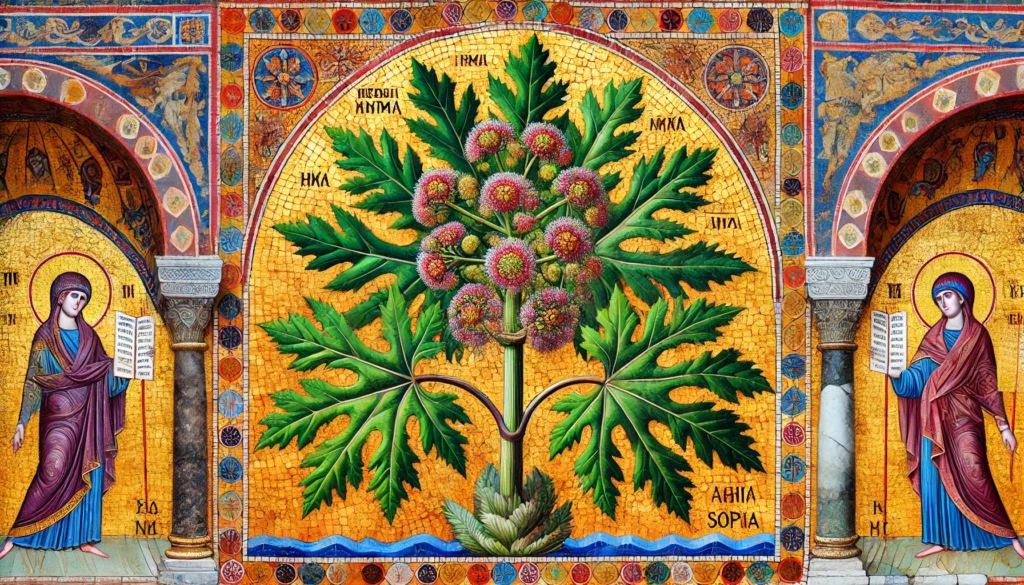

Home » Cat Plants » The Dangers of the Giant Hogweed Plant to Cats!

Giant hogweed (Heracleum mantegazzianum) is a large, invasive plant that can be highly toxic to cats. While cats are not technically allergic to giant hogweed, contact with the plant’s sap can cause severe skin irritation, blistering, and even blindness in felines. This poisonous plant is commonly found along streams, rivers, fields, and roadsides.
Ingestion may cause mild gastrointestinal upset, but is generally not life-threatening.
Ingestion can result in mild symptoms like vomiting, diarrhea, or drooling. Rarely fatal but may require veterinary care.
Eating these plants can lead to more pronounced symptoms like abdominal pain, lethargy, or difficulty breathing. Veterinary intervention may be necessary.
Ingesting even small amounts can cause severe symptoms like organ damage, seizures, or cardiac failure without rapid treatment.
All parts of these plants are extremely poisonous to cats and can quickly lead to death, even with immediate veterinary care.
** Please note: Please note that toxicity level can vary based on the amount ingested and the specific cat. It's always best to keep these plants completely inaccessible to cats and seek immediate veterinary care or call the poison hotline if you suspect your cat has ingested any part of a toxic plant.
If a cat comes into contact with giant hogweed sap, it may experience a range of symptoms. The sap contains phototoxic compounds called furanocoumarins, which make the skin highly sensitive to sunlight. Symptoms of giant hogweed poisoning in cats can include:
If you suspect your cat has come into contact with giant hogweed, it is crucial to seek veterinary care immediately. Your veterinarian will likely follow these steps to diagnose and treat giant hogweed poisoning:
For more information on giant hogweed poisoning in cats, consult with your veterinarian or visit the ASPCA Animal Poison Control Center website.

A: Yes, giant hogweed is harmful to pets, including cats. Contact with the plant can cause severe skin irritation and other health issues.
A: If your cat touches giant hogweed, wash the affected area with water and seek veterinary care immediately. Quick action can prevent more serious complications.
A: Yes, cats can get sick from eating giant hogweed. Ingesting any part of the plant can lead to gastrointestinal issues and other toxic effects.
A: Giant hogweed is identifiable by its large size, white flower clusters, and thick, hollow stems with purple blotches. Knowing how to spot this invasive plant can help you keep your pets safe.
A: Yes, plants like cow parsnip and wild parsnip look similar to giant hogweed and are also toxic to cats. Always check the plants in your yard to ensure they are safe for your pets.
A: Symptoms of giant hogweed poisoning in cats include skin irritation, blisters, and gastrointestinal distress. If you notice these signs, contact your veterinarian immediately.
Giant hogweed is native to the Caucasus Mountains region between the Black and Caspian Seas. It was introduced to Europe and North America in the 19th century as an ornamental garden plant. However, due to its invasive nature and the health risks it poses to humans and animals, giant hogweed is now considered a noxious weed in many countries.
Efforts are being made to control and eradicate this plant to prevent its further spread and minimize its impact on native ecosystems and public health.
Please note: The information shared in this post is for informational purposes only and should not be considered as veterinary medical advice.
🐾 A hilarious or heart-melting cat video
🐾 Our latest paws-on review of a cool cat toy